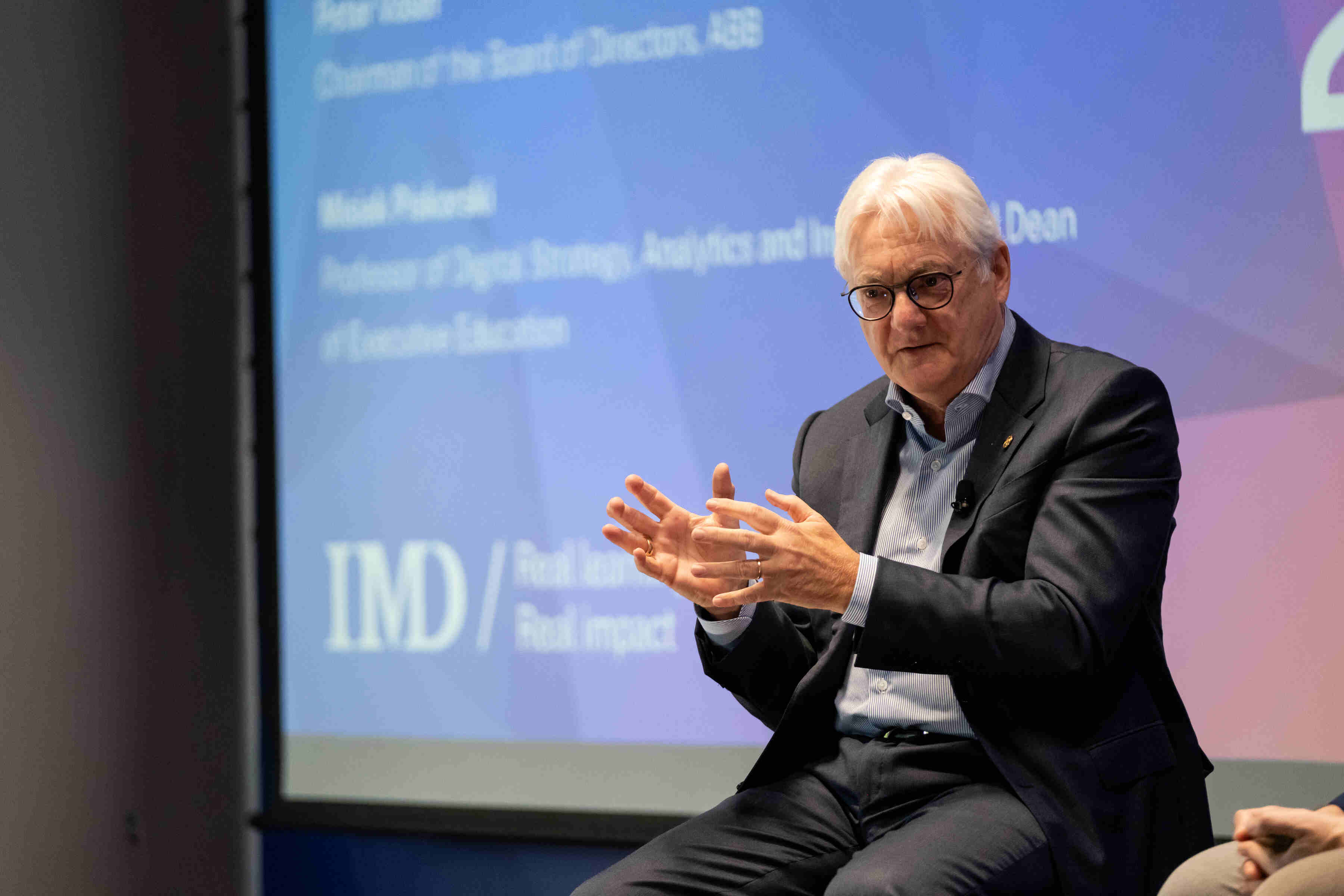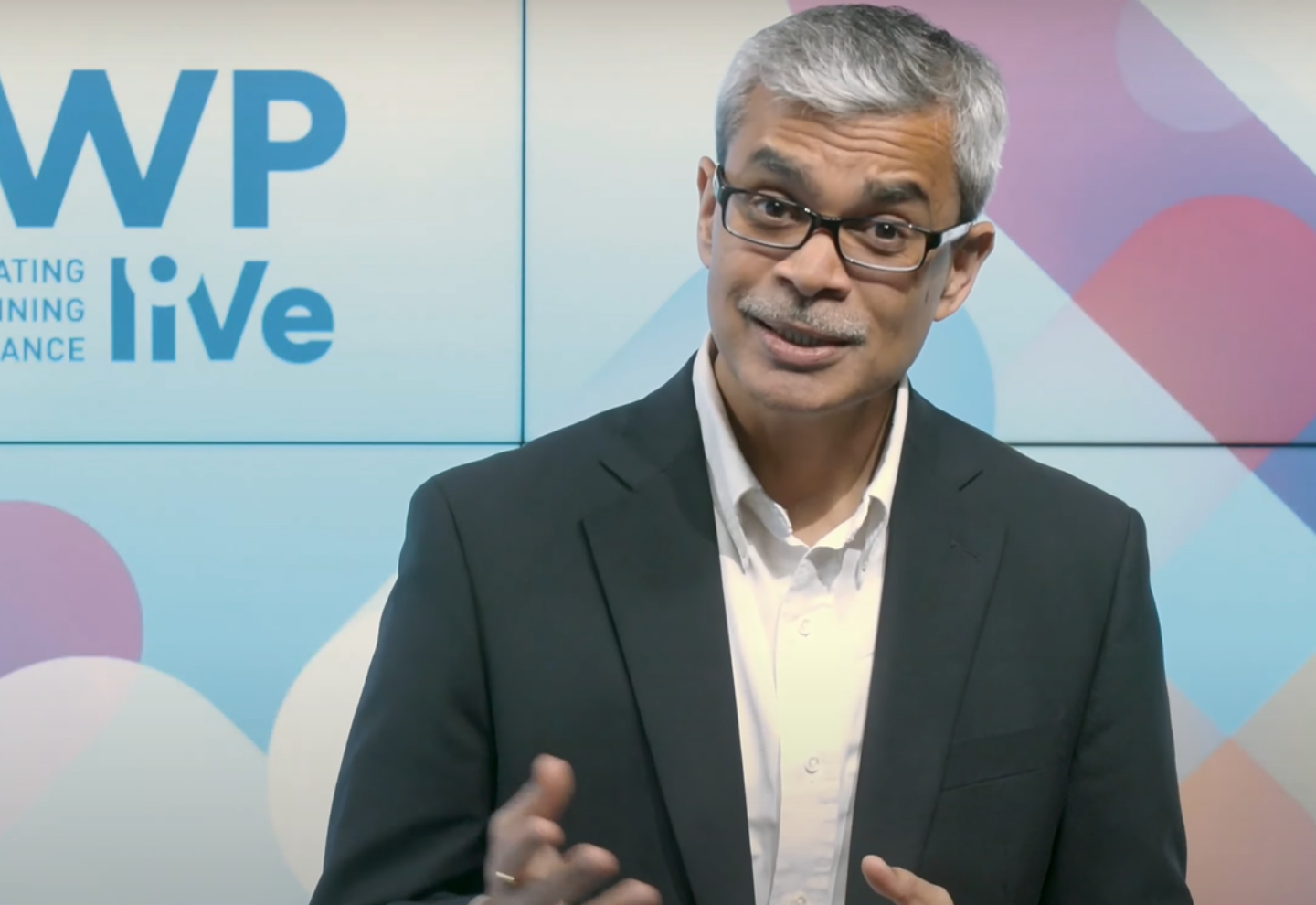
AI has been touted as the next big thing, but can it really help you?
Many managers confess that the relentless influx of new and better AI confuses them, and that determining how best to leverage it can lead to wasted time and resources: “The controversial reality is that AI remains limited in its practical implications,” says Professor of Strategy Arnaud Chevallier.
Depending on the type of information you have at hand and the environment you are in, it is possible to harness artificial intelligence to make better quality decisions. By taking stock of where AI is in its development, you can determine where exactly in your business it could be useful to you.
In their upcoming session “Support your decision-making with artificial intelligence” at OWP liVe, Chevallier, Professor of AI, Analytics, and Marketing Strategy Amit Joshi, and Research Fellow Maude Lavanchy will expose participants to real-world examples of how these technologies are changing business strategy across multiple industries throughout the world.
With their exclusive framework for decision-making using AI, you’ll gather deep insights to prepare for the future of AI and leave with the competencies you need to implement AI in your organization.
“A simple framework – empirically tested with dozens of executives – can help you understand which decisions AI can help with and which decisions it cannot,” says Joshi.
For senior executives plagued with indecision about AI and its misunderstood partner, machine learning, taking specific steps to analyze possible outcomes before embarking on their AI journey is essential.
All organizations will face challenges when implementing AI, whether or not they have the right technical team or programming skills. But they can avoid playing to their biases with proper scenario planning.
For a complete look at AI and how it can best help your organization’s decision-making processes, enroll in Joshi, Chevallier and Lavanchy’s session at OWP liVe today.
Research Information & Knowledge Hub for additional information on IMD publications

Effective communication is key to leading a team – but excessive talking can cause disengagement and frustration. Answer the following questions honestly to discover if you're talking too much – and read on for techniques to get more out of people...
A great way for executives to hone their communication skills is by having a coach listen in on their conversations and provide feedback. But given the increasing capability of AI-based tools to have meaningful conversations with people, research...
This note, designed for use in sessions and programs on negotiation, explores five distinct negotiator types: competitor, collaborator, strategist, innovator and problem solver. Each type has unique characteristics, strengths and weaknesses that c...
While leaders must focus on action, communication is equally crucial, both internally and externally, in promoting sustainability. Any significant shift, especially with a long term vision, creates uncertainty that might distract employees from th...
In today’s fast-paced and ever-changing business environment, small and medium-sized enterprises (SMEs) face unique challenges. From navigating market volatility to managing limited resources, SMEs must find ways to build resilience within their t...

Giving appropriate feedback is not a one-size-fits-all thing – getting it right depends on to whom you are giving it rather than how.

Three mysteries of the negativity bias and how to solve them.

The former CEO of Shell and Chairman of the Board of Directors at ABB and PSA shares his personal insights from leading companies through crisis

Working with family members in a business setting is a unique experience that brings both opportunities and challenges. Entrepreneurial families—those engaged in creating and managing businesses over generations—often rely on the strength of famil...

We are at the mercy of behaviors ingrained from childhood. These practical steps will help you identify and overcome your emotions to reach your full potential.
Research Information & Knowledge Hub for additional information on IMD publications
Research Information & Knowledge Hub for additional information on IMD publications
Research Information & Knowledge Hub for additional information on IMD publications
in Binder, Julia Katharina (Ed.); Haanaes, Knut Bjarne (Ed.) / Leading the sustainable business transformation: A playbook from IMD, pp. 331-343 / Hoboken: Wiley, 2025
Research Information & Knowledge Hub for additional information on IMD publications
Research Information & Knowledge Hub for additional information on IMD publications
Research Information & Knowledge Hub for additional information on IMD publications
Research Information & Knowledge Hub for additional information on IMD publications
in I by IMD
Research Information & Knowledge Hub for additional information on IMD publications
Research Information & Knowledge Hub for additional information on IMD publications
Research Information & Knowledge Hub for additional information on IMD publications


